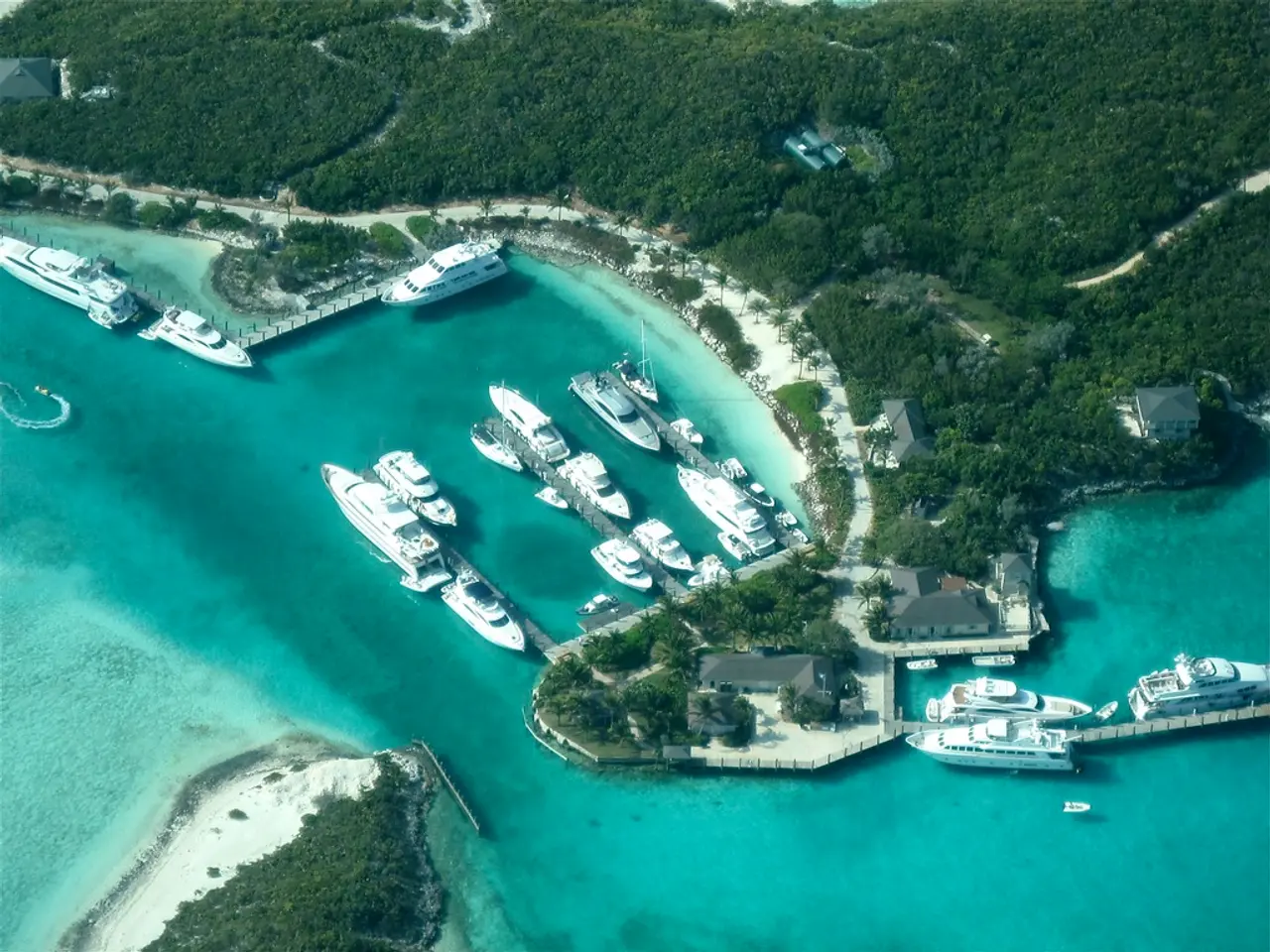Water Scarcity in Usedom, Germany: Causes, Effects, and Potential Solutions
Causes of Water Scarcity
Struggle with Drinking Water Shortage in German Vacation Region
The island of Usedom, a popular tourist destination in Germany, faces water scarcity due to several factors:
- Tourism: With around 80,000 guest beds, Usedom resembles a bustling metropolis during peak times, leading to increased demand for water.
- Water Transportation: Approximately a third of Usedom's water is transported from the mainland due to rising consumption. This creates an imbalance between consumption and replenishment on the island.
- Soil Characteristics: Usedom's sandy soil barely stores rain, making it difficult for rainfall to replenish the groundwater.
Effects of Water Scarcity
The consequences of water scarcity in Usedom can be far-reaching:
- Economic Impact: Businesses, particularly those in tourism and agriculture, are affected by water shortages, potentially leading to economic losses.
- Environmental Impact: Reduced water levels in lakes and rivers can harm local ecosystems and wildlife.
- Health and Hygiene: An inadequate water supply can compromise public health by impacting sanitation and hygiene.
Potential Solutions
- Water Conservation Technologies: Implementing water-saving technologies, such as rainwater harvesting systems and low-flow appliances, can significantly reduce consumption.
- Sustainable Practices: Encouraging sustainable practices among residents and tourists, such as reduced water usage in hotels and restaurants, can help mitigate the issue.
- Water Management Plans: Developing comprehensive water management plans that balance supply and demand is crucial. This could involve monitoring water usage, setting quotas, and investing in water-efficient infrastructure.
- Education and Awareness: Educating the public about the importance of water conservation can lead to behavioral changes that contribute to solving the problem.
- Diversification of Water Sources: Exploring alternative water sources, such as desalination or water recycling, could provide additional supplies during periods of scarcity.
Case Studies
- Johannesbad Group: Although not specific to Usedom, the Johannesbad Group in Germany has successfully implemented water-saving technologies, reducing water consumption by 73,504 m³ through innovative systems[1]. This model could be applied in regions like Usedom.
Conclusion
Addressing water scarcity in Usedom requires a multi-faceted approach involving technology, policy, and public awareness. By adopting sustainable practices and investing in water-saving technologies, Usedom can mitigate the effects of water scarcity and ensure a more resilient future for its residents and visitors.
Districts and municipalities are working on a strategy for ensuring a supply of drinking water, recognising the need for modern storage and distribution models on Usedom. Luxury guests consume up to 350 liters of water per day, three times more than an average household, highlighting the need for sustainable practices in the tourism sector. The water price for consumers on Usedom has increased to around 3.17 euros per cubic meter, well above the national average, further emphasising the urgency of addressing this issue.
[1] "Johannesbad Group: Reducing Water Consumption by 73,504 m³." (n.d.). Retrieved from https://www.johannesbad-group.com/en/news/johannesbad-group-reduces-water-consumption-by-73504-m3/
Consumer awareness about the impact of excessive water usage in their lifestyle can help reduce demand for water resources in Usedom, Germany. To support environmental science and sustainable living, homeowners and tourists can make conscious decisions to conserve water by adopting eco-friendly practices in home-and-garden maintenance. Additionally, supporting and emulating environmental-science initiatives, such as those shown by the Johannesbad Group, can further instill sustainable practices in the tourism sector to combat climate-change effects on water scarcity in Usedom.




